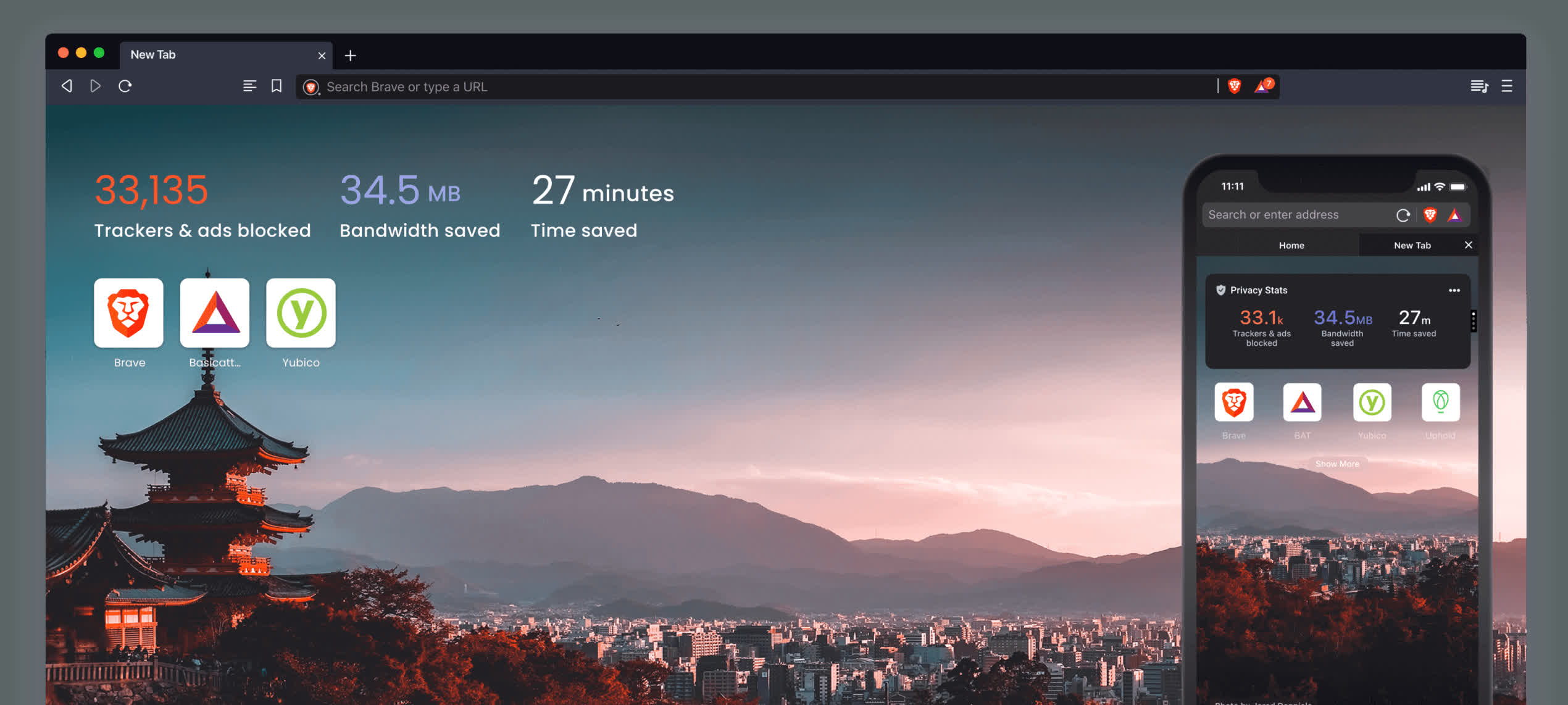In context: Google originally came up with Accelerated Mobile Pages (AMP) framework to help websites load faster on mobile. However, there have been quite a few strings attached with this tech, for both the owner/publishers of websites and their visitors. Now, Brave browser and DuckDuckGo have announced measures that will block Google's AMP version of a website and will instead load the original page.

Google has long been accused of using AMP to further its dominance on the web. Pitched as a way to enable faster load times on mobile along with increased exposure in search results for businesses and publications, the tech ultimately gives Google more control over how web pages are rendered, including their ad/monetization systems.
Meanwhile on the user end, AMP serves as another way for Google to track visitors, which Brave says is harmful for them and the Web at large. In a bid to boost user privacy, the company has announced a new feature called De-AMP, which it notes will rewrite links and URLs to prevent users from ending up on AMP pages altogether.
Brave also says that in some cases, Google's AMP pages load slower than the actual website. De-AMP is currently being rolled out to Brave's Nightly and Beta releases and will be enabled by default on the browser's desktop and Android builds with version 1.38.
NEW: our apps & extensions now protect against Google AMP tracking. When you load or share a Google AMP page anywhere from DuckDuckGo apps (iOS/Android/Mac) or extensions (Firefox/Chrome), the original publisher's webpage will be used in place of the Google AMP version.
— DuckDuckGo (@DuckDuckGo) April 19, 2022
DuckDuckGo announced a similar move via Twitter, noting that its apps and extensions on all platforms will now protect against Google AMP tracking. Google's search rival further accused the company of forcing the technology on publishers by prioritizing AMP links in search results and favoring its own ads on AMP pages.
PCWorld reports that a Google spokesperson responded to the allegations by calling them misleading, noting that they 'conflate' a number of different web projects, and repeat a number of 'false claims.' Google argued that the open-source framework was developed in collaboration with publishers and tech companies to enable web content to load faster.
When AMP was created, Google's spokesperson continued, it took 19 seconds on average to load a webpage on mobile with a 3G connection. While connectivity speeds and web technologies have improved vastly since then, Google notes that AMP now lets businesses create better web experiences, especially those without large development teams.
https://www.techspot.com/news/94299-brave-browser-duckduckgo-users-now-see-less-google.html